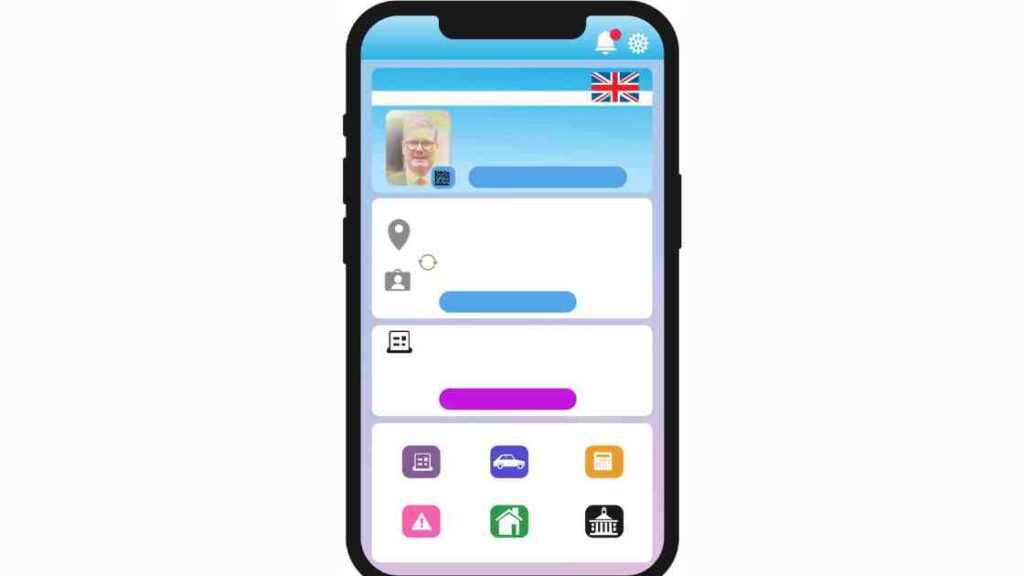BRITAIN TO INTRODUCE MANDATORY DIGITAL ID DESPITE CIVIL LIBERTIES CONCERNS
The British government is set to announce plans for mandatory digital ID cards for all working adults, a controversial measure aimed at tackling illegal migration that critics are calling a “dystopian nightmare.”
Under the proposed system, dubbed the “Brit Card,” anyone starting a new job or renting property would need to present digital identification through a mobile app, which would be verified against a central government database. Prime Minister Sir Keir Starmer could officially announce the plan as early as tomorrow.
The Labour government has long advocated for a national identification system, arguing it would help combat illegal immigration by making it harder for undocumented migrants to work or rent properties in the UK. Currently, Britain is one of the few European countries without a mandatory ID system.
“We all carry a lot more digital ID now than we did 20 years ago, and I think that, psychologically, it plays a different part,” Starmer told the BBC earlier this month, suggesting that digital IDs could “play an important part” in making Britain less attractive to illegal migrants.
However, the proposal has sparked fierce opposition from civil liberties campaigners, politicians across the spectrum, and the public. Critics warn it would erode privacy, create cybersecurity risks, and transform Britain into a “papers please” society where citizens must constantly prove their identity.

Gracie Bradley of campaign group Liberty warned the new plan would be “likely to be even more intrusive, insecure and discriminatory” than the Labour government’s failed 2006 initiative under Tony Blair.
Rebecca Vincent of Big Brother Watch accused ministers of creating a “knee-jerk response to the small boats crisis,” adding: “We are sleepwalking into a dystopian nightmare where the entire population will be forced through myriad digital checkpoints to go about our everyday lives.”
Public skepticism about the government’s ability to protect personal data remains high. A Big Brother Watch poll found that 63% of Britons do not trust the government to keep their digital identity information secure, following several high-profile cyber-attacks against British national infrastructure.
Conservative justice spokesman Robert Jenrick dismissed the plan as ineffective against illegal immigration, noting that “most employers who are employing individuals illegally are doing so knowingly.”
Former Cabinet minister David Davis, a prominent opponent of Blair’s ID card scheme, renewed his criticisms: “The systems involved are profoundly dangerous to the privacy and fundamental freedoms of the British people.”
Despite the opposition, some political figures and think tanks support the initiative. Labour Together, a group closely linked to Starmer, published a document in favor of the Brit Card, calling it “a new piece of civic infrastructure” that would “support better enforcement of migration rules.”
Alexander Iosad of the Tony Blair Institute hailed the prospect, saying it “would be one of the most important steps taken by this or any government to make British citizens’ everyday lives easier and build trust.” The proposal will undergo consultation and would require legislation before implementation. The UK previously had mandatory ID cards only during wartime, with the last ones scrapped in 1952






